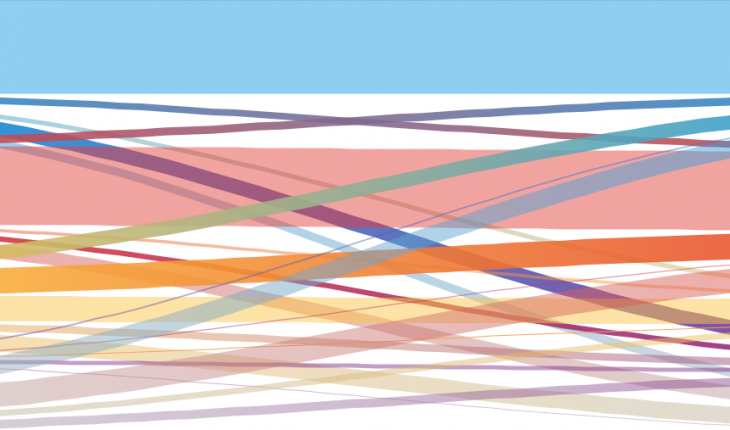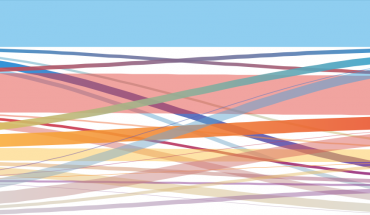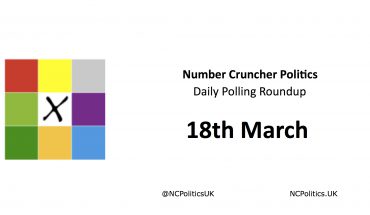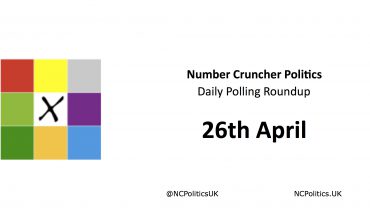Saturday was a bit like being transported back to 2015, with four separate voting intention polls, three of them showing a dead heat. Opinium, YouGov and Survation all had Labour and the Conservatives neck-and-neck, and ComRes put Labour a point ahead.
The interesting thing here is the swing – at roughly the same time, YouGov and Opinium had previously shown the Conservatives narrowly ahead, whereas Survation had Labour substantially ahead, as they typically have (7 points in their previous poll). ComRes hadn’t polled voting intention since the general election before this poll, so the same comparison can’t be made.
A couple of other trends worth highlighting one is that where a like-for-like comparison can be made, leader ratings and voting intention have moved in opposite directions, with toplines shifting towards Labour, but leader rating questions shifting towards Theresa May (or at least, away from Jeremy Corbyn). While it's not unusual for the two to diverge, it's not normal for it to happen as dramatically as this.
Another trend, spotted by Paula Surridge at Bristol, is the unusually high number (often over 20 per cent) of women answering "don't know" to the voting intention question at the moment (roughly twice the number of men). This was also apparent in our in house poll. Again, it’s not unusual to see a gender difference but this one is bigger than usual.
Aside from voting intention, ComRes and Survation both asked questions on Syria. Different questions, different timings, but both found narrow net opposition to military intervention, though in both cases there were substantial numbers of undecideds.
The launch of the Peoples Vote campaign for the second EU referendum was another reminder of the wide variety of questions (and the even wider variety of answers) you get when polling this topic. John Curtice braves the minefield, and concludes that whatever the level of support for another plebiscite, there isn’t much evidence that it’s changed recently.
And with this week marking the 50th anniversary of Enoch Powell’s “Rivers of Blood” speech, British Future has a report on race relations with polling by Survation, including a question asking people how they’d feel if people in various positions were of a different race.
This highlights something interesting about question design – if you asked people “are you racist?” it’s unlikely that you’d get many affirmative responses, but ask this question, and 7-21 per cent of people admit that they’d feel differently depending on the other person’s race.
We also got the local election projections from profs Rallings and Thrasher at Plymouth – the headline is that they expect Labour to gain about 200 seats across the various parts of England that are up next month, with the Tories losing 75, the Lib Dems gaining modestly, and UKIP being slaughtered.
As ever, unless you’re really interested in who’s responsible for bin collections, the thing to watch is not seat changes or control changes, but vote share changes, for the simple reason that it’s those that are most informative as to the national picture. Rallings and Thrasher, based on recent local by-elections, project the two main parties level on 36 per cent apiece in the national equivalent vote.
That’s actually a 0.5 per cent swing to the Tories since 2014, and wouldn’t be terribly good for Labour on any historical comparison. Opposition leaders to have been within a point of neck-and-neck at local elections held year after a general election include Corbyn himself in 2016, Ed Miliband in 2011, Iain Duncan Smith in 2002 and Neil Kinnock in both 1988 and 1984. By contrast, John Smith won by 8 points in 1993 and David Cameron by 13 points in 2006.
And finally, the House of Lords Select Committee on Political Polling and Digital Media releases its report tomorrow.
Pollrush (plus local elections)
|
16th April 2018 |

Get it before it’s on the website – sign up for this briefing: <style type="text/css"
Please send me (select as required):
Email Format



